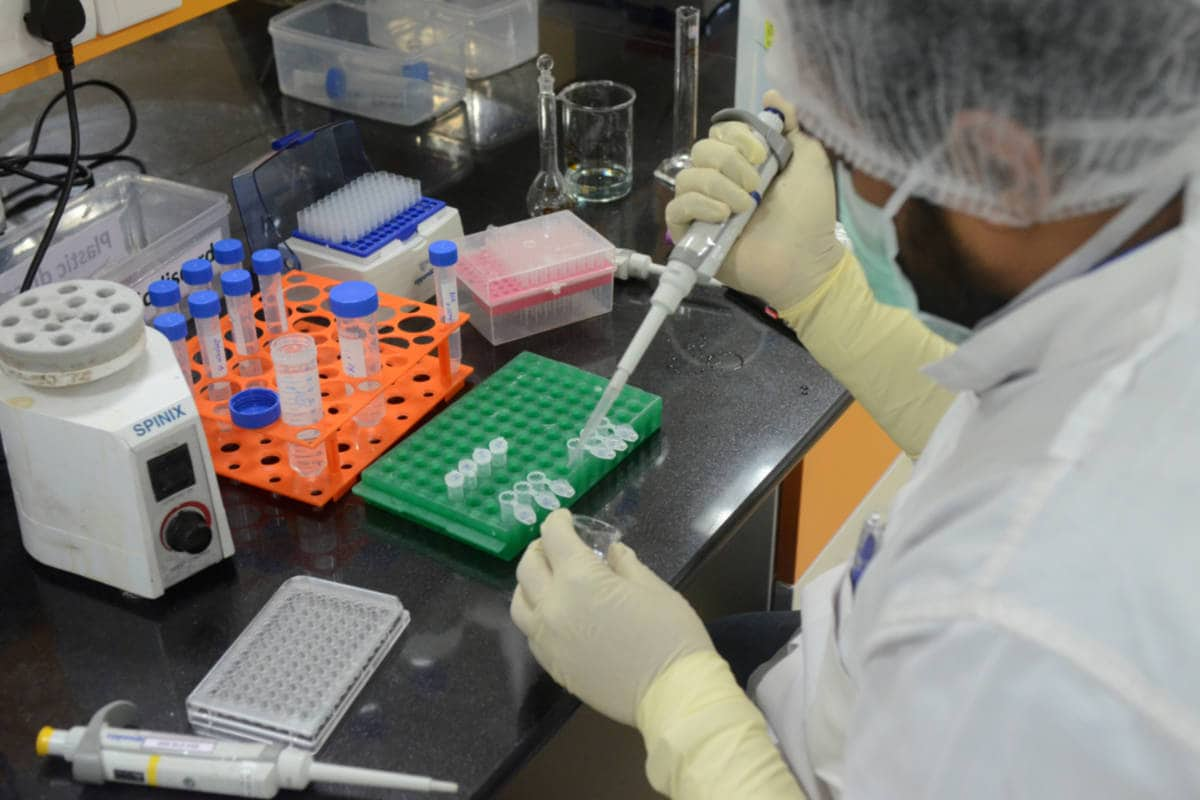
New Delhi: The country’s central drug regulator is seized of the suspected serious adverse event (SAE) that occurred in Chennai last month during phase II / III trials of the Covishield Covid vaccine and a final and in-depth evaluation is likely to be completed soon. of the incident. said Dr. Samiran Panda, head of the division of epidemiology and communicable diseases at the Indian Council of Medical Research (ICMR).
ICMR is co-sponsoring the Covishield vaccine bridge study that was developed by the Serum Institute of India (SII), Pune with a master seed from Oxford-AstraZeneca. The SII is the other sponsor. Phase II / III trials are underway at 17 sites to determine the safety and immunogenicity of Covishield vaccine in healthy adults, according to the Indian Clinical Trials Registry. Phase III trials to study the efficacy of the vaccine are underway in the UK and Brazil.
Last week, a Chennai resident who volunteered at the Covishield trials provided legal notice to six parties, which included the ICMR, SII, the Comptroller General of Drugs of India (DCGI) and the CEO of Astra Zeneca. , UK, for a suspected serious adverse event after receiving the experimental vaccine. The trial volunteer requested compensation of Rs 5 million.
Panda, however, told News18 that the event, which occurred in October, was duly reported to the institutional ethics committee within 24 hours and to the drug regulator within seven days.
“The event was reported, an initial assessment conducted, and the DCGI is likely to complete an in-depth and objective scientific assessment soon,” Panda said.
“Any trial that analyzes the safety and efficacy of a drug would counteract some type of side effect or adverse event. The point is to find out if the adverse event is related to the product under investigation, in this case the vaccine, if there is causation. A few months ago, the DCGI stopped local trials following an adverse event in the UK. Therefore, we should wait for DCGI to complete its assessment of the finer details, which are likely to come out soon, ”he added.
Meanwhile, on Sunday, the Serum Institute released a public statement refuting the 40-year-old Chennai resident’s legal notice, calling it malicious and ill-conceived. The company said it would seek damages of more than “100 million rupees.”
“While the Serum Institute of India is sympathetic to the medical condition of the volunteer, there is absolutely no correlation with the vaccine trial and the medical condition of the volunteer. The volunteer falsely blames his medical problems on the COVID vaccine trial. The claim is malicious because the volunteer was specifically informed by the medical team that the complications he suffered were independent of the vaccine trial he was subjected to, ”the company statement said.
The problem raises questions of transparency and protection for volunteers
Experts and medical rights activists said the entire incident and the sequence of events have raised concerns about transparency in clinical trials and about the procedure followed to report and probe adverse events.
“When the event occurred, the company did not make it public. They said they had submitted information to the DCGI and the ethics committee. Any participant will be suspicious and concerned about follow-up care if faced with an adverse event. The ethics committee must protect the patient, ”said Dr. Amar Jesani, editor of the Indian Journal of Medical Ethics.
Jesani said the patient should also have access to their full medical records and that regulators should pause trials, if necessary. According to the Chennai volunteer’s legal notice, he suffered from acute neuroencephalopathy and was admitted from October 12 to 26.
“In regards to stopping the trials, the UK trials were stopped after similar neurological effects were observed. If there are reasons to stop these trials as well, the regulator should not hesitate and maintain the highest standards, ”Jesani added.
Malini Aisola, co-coordinator of the All India Drug Action Network, said transparency is essential to protect the interests of volunteers who consent to participate in trials, which are intended to generate data for the general public interest. AIDAN characterized the IBS’s intention to seek damages as a blatant attempt to intimidate a participant in a clinical trial.
“The adverse event occurred in October, more than a month and a half ago. The CDSCO’s silence is deeply concerning because it appears that the regulator has not yet reached a conclusion and is still contemplating the serious adverse event. It raises questions about how adverse event data are reported in trials and highlights the lack of transparency around the protocols through which adverse events are investigated and adjudicated, ”Aisola said.
Aisola also questioned the opacity of the study protocols, saying: “The detailed protocol of the bridge study in India, along with any amendments made, should be shared in the public domain,” Aisola added.
.